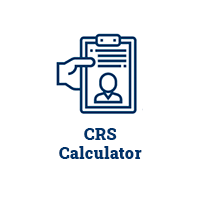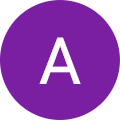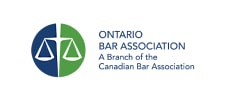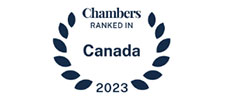The Federal Skilled Worker (FSW) program is one of the three immigration programs under Canada’s Express Entry immigration category. The FSW program is Canada’s flagship immigration program geared towards strengthening Canada’s skilled workforce. Most successful immigration candidates under the Express Entry do apply under the FSW program.
Requirements for The Federal Skilled Worker Class
Before applying, be sure you are eligible for the FSW program. There are certain requirements you must meet. These are:
Language Proficiency Test
To test your language proficiency, you need to undertake an approved language proficiency test in English or French. You must take the test for writing, reading, listening and speaking abilities.
For the French test, you can take either the Test d’ Évaluation de Francais (TEF) or Test de Connaissance de Francais pour le Canada (TCF). For the English test, you can take either the IELTS or CELPIP test. These language tests are valid for 2 years.
Note that you must reach a minimum of Canadian Language Benchmark (CLB) Level 7 in all the 4 abilities. Proficiency in both English and French can increase your Comprehensive Ranking System (CRS) score.
Work Experience
The FSW program, as the name implies, is only available to skilled workers. Although, you don’t need to have Canadian work experience before applying. However, you must have a minimum of 12 months (or 1,560 hours) of continuous, full-time, paid, and skilled foreign work experience within the past ten years (or an equal amount of part-time experience). Note that work hours beyond 30 hours/week will not be counted.
The skilled work experience is classified under National Occupation Classification (NOC) Skill Levels O, A, or B.
Skill Level O refers to work experience acquired under management occupations, Skill Level A is work experience obtained from occupations that require a university education. Skill Level B are work experience acquired from occupation that require a college education or apprenticeship
You must show that while working in your primary occupation, you performed the duties set out in the lead statement of the occupational description of NOC. Also, your skilled work experience must have the same NOC as the job you want to use for your immigration application.
Note that work experience garnered while studying may count towards your minimum requirement. However, the work experience must be continuous, paid by wages or commission and should meet other relevant conditions.
Educational Qualification
You must have a minimum of a Canadian high school diploma or the equivalent in foreign education. If you did not have your education in a Canadian educational institution, you need an Educational Credential Assessment (ECA) report that attests to the foreign education using Canadian standards.
There are various organizations where you can obtain your ECA report. These include the World Education Services, International Credential Assessment Service of Canada, International Qualifications Assessment Service, etc
Proof of Funds
You must show that you have enough funds to support yourself and other accompanying family members (if any) upon settlement in Canada. The amount of the required funds depends on the number of family members included in your application.
If you include 1, 2, 3, 4, 5, 6, or 7 family members in your application, the required funds are $13,310, $16,570, $20,371, $24,733, $28,052, $31,638, $35,224 respectively.
However, you don’t need to show proof of funds if:
- You have a valid job offer from an employer in Canada; or
- You are currently able to legally work in Canada.
Place of Residence
You must not intend to reside within the province of Quebec, but rather outside this province (province of Quebec). This is because this province selects its skilled workers separately.
Minimum FSW Points
You must score a minimum of 67/100 points on the FSW eligibility points grid. The FSW program is a point-based system that evaluates your profile within a 100-point maximum score.
You’ll be evaluated on factors like work experience, educational qualification, English/French skills, age, adaptability and job offer.
You Must Be Admissible
You must be admissible to Canada. For example, if you have committed or have been convicted of a crime, you may be inadmissible.
Identification Documents
Of course, you must have a valid International passport.
Do you need a Canadian job offer before applying for the FSW program?
No, you don’t. Most candidates invited to apply under the Express Entry don’t have a formal Canadian job offer when applying. However, having a job offer can increase your FSW Comprehensive Ranking System (CRS) score by 50-200 points.
After meeting the conditions above, you can now proceed with your application.
Having noted these, let’s dive into how to apply for the FSW program.

Free Express Entry CRS Calculator
We have years of experience assisting applicants with their permanent residence applications through the Express Entry system. See if you qualify by calculating your CRS score.
How to Apply
- Create an online express entry profile. When creating your profile, you will need to submit your identification documents, language proficiency test results, and the Educational Credential Assessment report. This profile will be valid in the pool of candidates for 12 months.
Note that the Immigration, Refugees and Citizenship Canada (IRCC) oversees the applications. - There is a Comprehensive Ranking System (CRS) where the profiles of all Express Entry candidates are ranked. The CRS is a points-based system that the IRCC uses to assess and score all candidates’ profiles and rank them in the Express Entry pool. It assesses all applicants’ education, language ability, work experience, skills, etc. So, your profile will be ranked with other candidates’ profiles.
- Candidates with the most competitive CRS score will get an invitation to apply (ITA) for Canadian permanent residence (PR). So, if you have a suitable high CRS score, you will be invited to apply for PR.
- Within 60 days after the invitation, you will need to submit an electronic Application for
Permanent Residence (eAPR) to the IRCC. This requires you to submit the relevant documents, which must be in either English or French. If you don’t submit the eAPR within 60 days, your invitation will automatically expire.
The documents to submit include passports, birth certificates, language test results, proof of funds, medical examination confirmation, etc. You will need to show that you have completed a medical examination with an IRCC-recognised panel physician.
Also, you will need to provide a clearance certificate (police background check) from each country you have lived in for at least six months since you turned 18 years of age. - Your application will be reviewed by a Canadian immigration officer. If your application is approved, you will receive a Confirmation of Permanent Residence (COPR) document. An officer at a Canadian port of entry or at an IRCC office will sign and date the document.
- The final step is for you to get your Permanent Residence Card. Once you have your confirmation of status, you can then apply for your PR card.
How Long Does the FSW Application Take?
Typically, the FSW application takes 6 months – from the time the Canadian authorities receive the application to the time of issuance of a permanent residence visa.
How We Can Help You
When applying for the FSW program, there are several requirements you need to strictly adhere to. At the Law Office of Matthew Jeffrey, we have robust expertise and experience to help you successfully navigate through the application processes.
From the start to finish, we help our clients successfully pull their FSW application packages. Fill out our Free Express Entry CRS calculator to see if you qualify to apply under the Federal Skilled Worker Class.























